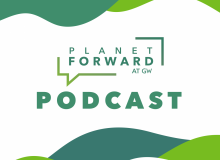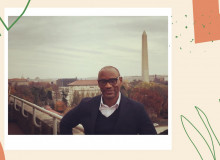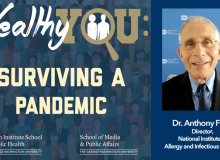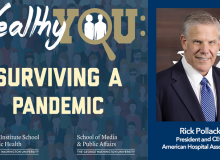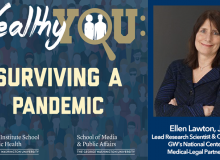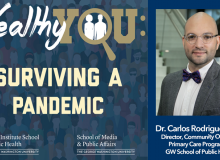Green Living
Planet Forward Senior Correspondent
Moving to Copenhagen has made me realize that instead of constantly evaluating my personal habits, perhaps I should be more critical of the systems which ultimately shape society’s collective impact.

Lancaster Central Market in Lancaster, Pennsylvania, faced drastic customer reductions at the beginning of the pandemic, resulting in the closure of several stands, and yet most still endure. (Jared Kofsky/PlaceNJ.com/Creative Commons)
Planet Forward Senior Correspondent | New York University
Why do people continue to go hungry in one of the wealthiest nations in the world? And what can we do about the food system to prevent this from happening?
Founding Director, Planet Forward
The pandemic has forced us to reconsider our relationship with the planet we call home. We sat down with global explorer and sustainability travel pioneer Sven Lindblad to discuss what it’s going to take to get back out in the world.
The George Washington University
Darryl Fears, a veteran Washington Post reporter who has been covering the environment for the past decade, discusses his Pulitzer Prize-winning work, and offers insight on the issue of racism in both newsrooms and conservation.
Founding Director, Planet Forward
During this live episode of “Healthy You: Surviving a Pandemic,” Dr. Anthony Fauci shares his thoughts on opening schools safely, vaccine availability and effectiveness, and how he maintains his ethics and values during this trying time.
George Washington University
A seminar in Stockholm, which aims to be fossil fuel free by 2040, had this student examining the culture and lifestyle that has a much smaller emissions footprint per capita than we do in the United States.
Founding Director, Planet Forward
Rick Pollack, president and CEO of the American Hospital Association, talks about how hospitals around the U.S. have been impacted financially by the pandemic and why it's important to "follow the science."
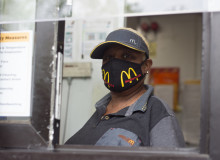
Restaurant employees — often low-wage earners with no employer-provided health insurance — were deemed "essential workers" during the pandemic. (Paul Sableman/Creative Commons)
The George Washington University
Throughout this pandemic we’ve seen a vast amount of people be affected in different ways. But COVID-19 has especially exposed the discrepancies facing people from marginalized groups.
Founding Director, Planet Forward
COVID-19 is creating a financial crisis for families — including the inability to pay basic bills like mortgage or rent, car payments, and utility bills — which only adds to the global health emergency.
Founding Director, Planet Forward
COVID-19 is impacting both Black and Brown communities disproportionately. This pandemic has brought attention to health disparities, specifically in the Latino population.


